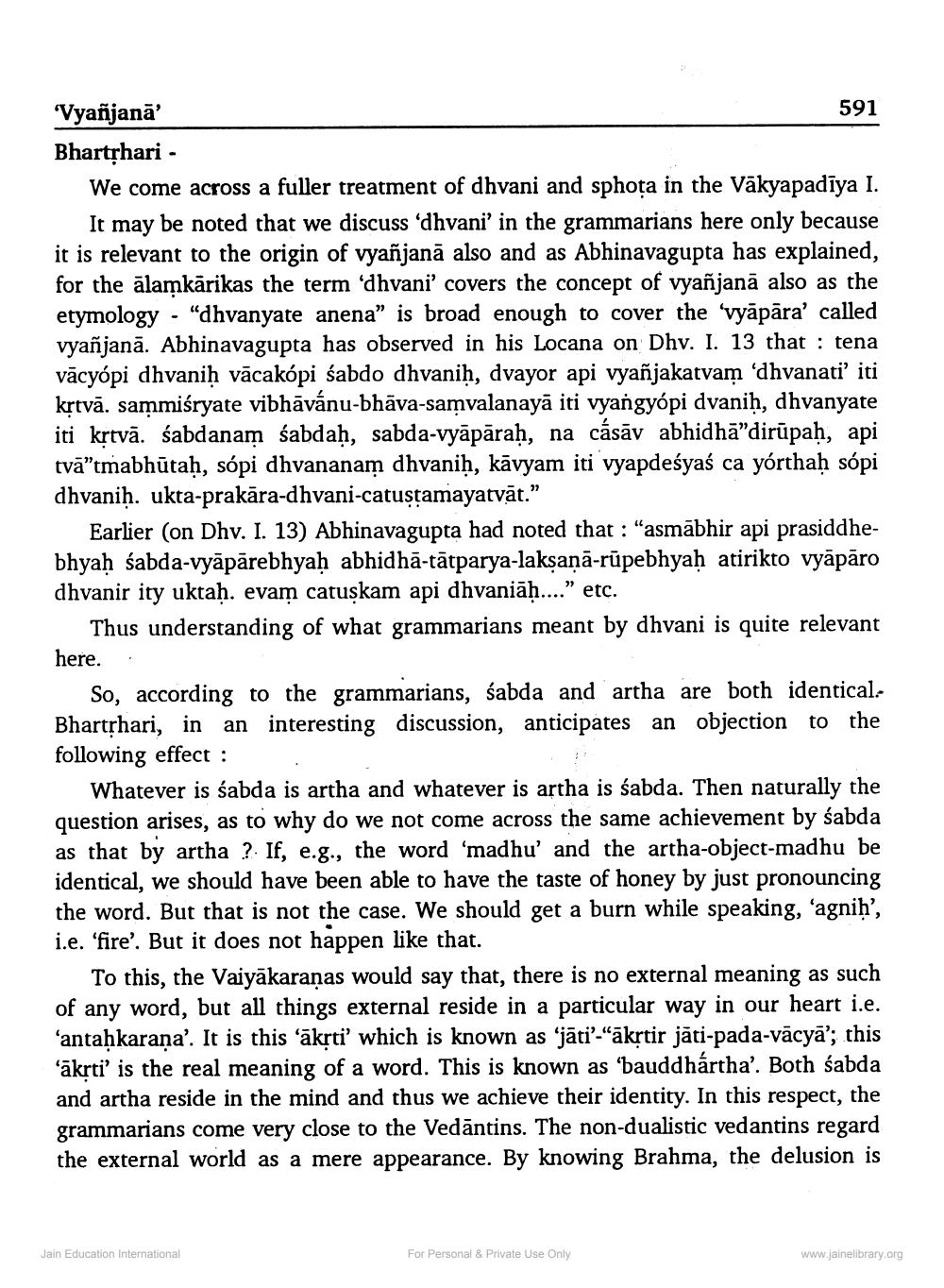________________
Vyañjanā
591 Bhartshari -
We come across a fuller treatment of dhvani and sphoța in the Vākyapadīya I.
It may be noted that we discuss ‘dhvani' in the grammarians here only because it is relevant to the origin of vyañjanā also and as Abhinavagupta has explained, for the ālamkārikas the term 'dhvani' covers the concept of vyañjanā also as the etymology - "dhvanyate anena” is broad enough to cover the 'vyāpāra' called vyañjanā. Abhinavagupta has observed in his Locana on Dhv. I. 13 that : tena vācyópi dhvaniḥ vācakópi śabdo dhvaniḥ, dvayor api vyañjakatvam 'dhvanati' iti krtvā. sammiśryate vibhāvánu-bhāva-samvalanayā iti vyangyópi dvanih, dhvanyate iti krtvā. śabdanam śabdaḥ, sabda-vyāpāraḥ, na cásāv abhidhā”dirūpaḥ, api tvā”tmabhūtaḥ, sópi dhvananam dhvaniḥ, kāvyam iti vyapdeśyaś ca yórthaḥ sópi dhvaniḥ. ukta-prakāra-dhvani-catuștamayatvāt.”
Earlier (on Dhv. I. 13) Abhinavagupta had noted that : “asmābhir api prasiddhebhyah sabda-vyāpārebhyaḥ abhidhā-tātparya-laksanā-rūpebhyah atirikto vyāpāro dhvanir ity uktaḥ. evam catuṣkam api dhvaniāḥ....” etc.
Thus understanding of what grammarians meant by dhvani is quite relevant here. .
So, according to the grammarians, śabda and artha are both identical. Bhartshari, in an interesting discussion, anticipates an objection to the following effect :
Whatever is sabda is artha and whatever is artha is sabda. Then naturally the question arises, as to why do we not come across the same achievement by śabda as that by artha ? If, e.g., the word 'madhu' and the artha-object-madhu be identical, we should have been able to have the taste of honey by just pronouncing the word. But that is not the case. We should get a burn while speaking, 'agniḥ, i.e. 'fire'. But it does not happen like that.
To this, the Vaiyākaraṇas would say that, there is no external meaning as such of any word, but all things external reside in a particular way in our heart i.e. ‘antahkarana'. It is this ‘āksti' which is known as 'jāti-“ākrtir jāti-pada-vācyā'; this 'āksti' is the real meaning of a word. This is known as 'bauddhártha'. Both śabda and artha reside in the mind and thus we achieve their identity. In this respect, the grammarians come very close to the Vedāntins. The non-dualistic vedantins regard the external world as a mere appearance. By knowing Brahma, the delusion is
Jain Education International
For Personal & Private Use Only
www.jainelibrary.org




